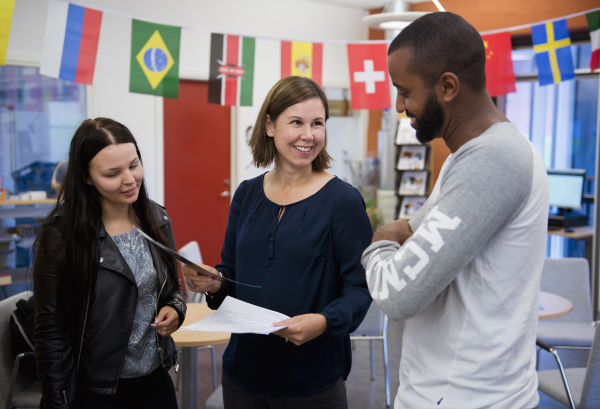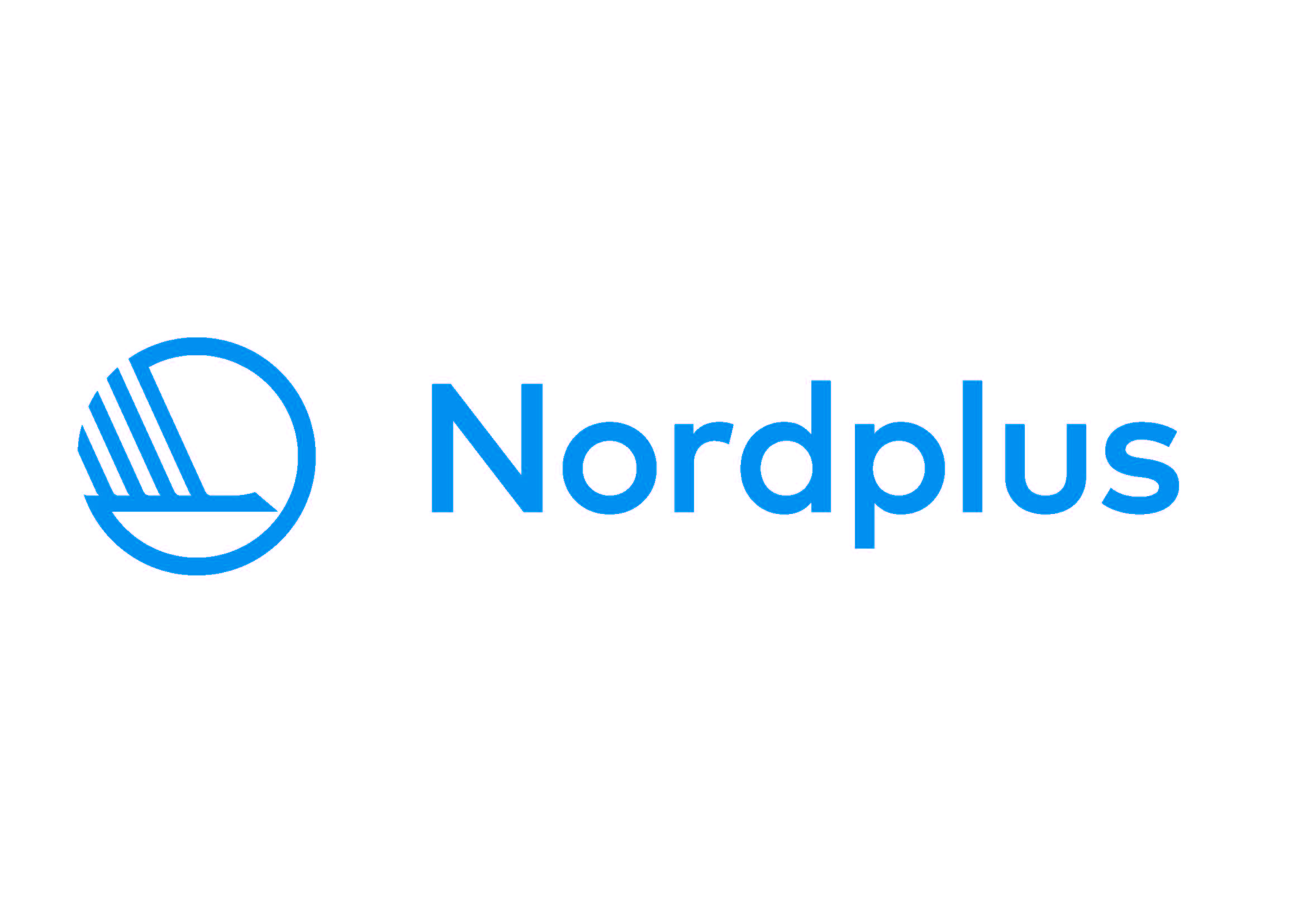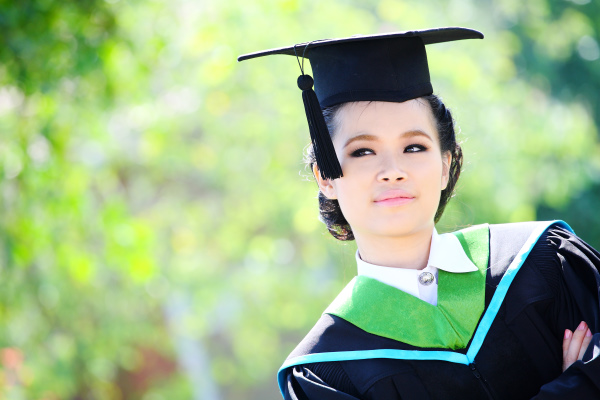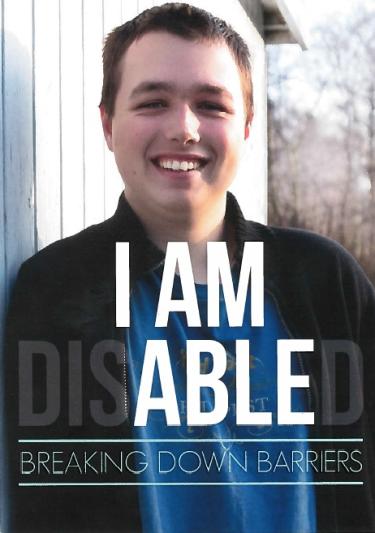Module 2: PLANNING STUDIES ABROAD
| Site: | Euroguidance Latvia Academy |
| Course: | Resource library on mobility guidance |
| Book: | Module 2: PLANNING STUDIES ABROAD |
| Printed by: | Guest user |
| Date: | Friday, 30 January 2026, 7:31 AM |
1. Time as a resource
 While it may seem early, it is a good idea to talk about learning mobility as a possibility already with pupils in compulsory school. Different mobility opportunities are available throughout all stages of learning. Having a goal to learn or train abroad can be motivating when learning languages and considering further education options. Long-term goals such as taking a degree abroad require timely financial planning.
While it may seem early, it is a good idea to talk about learning mobility as a possibility already with pupils in compulsory school. Different mobility opportunities are available throughout all stages of learning. Having a goal to learn or train abroad can be motivating when learning languages and considering further education options. Long-term goals such as taking a degree abroad require timely financial planning.
1.1. Planning an entire degree abroad
 For students planning to take an entire degree abroad, it is necessary to start at least a year in advance, but no later than:
For students planning to take an entire degree abroad, it is necessary to start at least a year in advance, but no later than:
- 10-12 months before the studies: Selecting the countries and education programmes to apply for and finding out about the application process for each individual education and country. Finding out if validation and/or recognition of the foreign degree is required to be able to work or continue studies in your home country.
- 9-10 months before the studies: Finding out about costs and fees. Is it possible to obtain a study allowance from home, and what are the requirements? Deciding if you can arrange everything yourself or if you will use a company that mediates studies abroad. Applying for scholarships (if available).
- 6-8 months before the studies: Checking which documents need to be translated and/or recognised. Where do documents need to be submitted and how much will processing cost?
- 3-6 months before the studies: Doing entrance exams and checking if a language test is required. Making sure you can finance yours studies. Completing and registering your applications for each education and country. Finding out about housing possibilities – student rooms or private rentals.
- 1-3 months before the studies: Applying for a student visa if required. Reviewing your European/international health insurance. Booking travel.
1.2. Planning a student exchange period abroad
 There are some variations between universities in different countries in the timing of each step of organising learning mobility.
There are some variations between universities in different countries in the timing of each step of organising learning mobility.
Reaching a cooperation agreement between different universities all over the world on the possibilities of exchange studies. Most universities have signed a variety of such contracts which stipulate the timing of each step in the process.
Applying for financing of the exchange period, for example, through the Erasmus+ or Nordplus projects. Most, if not all, universities in the Nordic/Baltic region have a long history of such contracts and have signed a charter, guaranteeing them such financing year after year.
Advertising the possibilities of mobility to the students. This usually happens in the first quarter of the year for the coming school year. Usually such advertisements give information about funded and non-funded possibilities.
Students seeking some form of guidance on how to apply. Such guidance can involve anything from the practical aspects of the application to how the exchange period can fit into the overall study plan. It may surprise students how difficult the latter step is. If the application is left to the last term of studies, students may not find the necessary courses to fill the required credit points of their study plans. Universities therefore often point out to their students that it is necessary to start planning a possible study period abroad already in the beginning of their studies, even though they plan to carry it out in a couple of years.
Students applying for mobility periods. Again, the timing varies between universities. It may therefore be useful for guidance practitioners to make a table of the relevant deadlines in their countries to be able to find the information fast if and when they are asked for it.
2. Variety of financial resources for mobility
 Financial support for students planning to study abroad comes from different sources. The most popular programme in Europe is the Erasmus+ programme and many in the Nordic/Baltic countries also know the regional cooperation programme Nordplus. This course focuses mainly on the opportunities provided by these two programmes.
Financial support for students planning to study abroad comes from different sources. The most popular programme in Europe is the Erasmus+ programme and many in the Nordic/Baltic countries also know the regional cooperation programme Nordplus. This course focuses mainly on the opportunities provided by these two programmes.
The Nordic countries have a specific programme called North2North for mobility projects among Denmark, Greenland, the Faroe Islands, Canada, the United States, Finland, Sweden, Norway, Iceland and Russia.
There are also national resources, both from the countries sending students abroad and from the countries receiving them. Please see the next section in this chapter for more details.
The chart below illustrates the variety of funding resources available for learning mobility.
Source: compiled by Euroguidance Latvia
3. National support
 Different types of support are offered by the Nordic and Baltic countries for studies abroad:
Different types of support are offered by the Nordic and Baltic countries for studies abroad:
Denmark
For VET students: A national scheme for Work Placement Abroad (PIU) gives financial support to all Danish VET students, going on a work placement abroad. This covers work placements worldwide. For HE Students: The Danish state educational support (SU) can be awarded for a study period abroad if the Danish educational institution accepts the study period abroad as part of the current Danish study programme.
Estonia
The Education and Youth Authority (Harno) is a government agency of the Ministry of Education and Research that deals with the implementation of Estonian education and youth policy. The Department of Internationalisation coordinates different scholarship programmes, for example:
- Study and research related scholarships to study abroad (short study visits, exchange studies and degree studies abroad);
- Study and research related scholarships to study in Estonia (degree and exchange studies for foreign PhD and MA students; foreign academic staff; summer and winter schools);
- Scholarships for special-needs students and for young people raised in a substitute home or family;
- Scholarships in the smart specialisation growth areas (information and communication technologies, health technologies and services) and for teacher education;
- Programme “The academic studies of Estonian language and culture abroad”, which supports 10 lecturers teaching Estonian language in 10 universities worldwide and implements different scholarships related to teaching and studying Estonian language and culture.
Finland
The Social Insurance Institution of Finland - Kela offers financial aid for studies outside Finland if the studies correspond to a course of study in Finland that would qualify for financial aid, or if a period of study or job training abroad is part of a course of study, which is being completed in Finland. The study programme must be full-time. Studies at an institute of higher education can be considered full-time studies if at least 5 credits of studies are completed per month. Other types of studies can also be considered full-time studies if the extent of the studies is at least 25 hours per week.
Iceland
The Icelandic Study Fund offers subsidised study loans to all university students, whether studying nationally or abroad. This means that the loans are inflation guaranteed but do not carry interests. If the student completes his/her studies in the time period planned by the university, 30% of the loan is turned into a grant. The minimum study period for this is two semesters and the ECTS credits must be at least 60. Further information (in Icelandic).Latvia
As of spring 2020 the Latvian government is no longer subsidising loans for studies abroad. Students are advised to apply for financial aid at their host university. Government scholarships for certain types of studies in a limited number of countries are available through annual competitions run by either embassies or the State Education Development Agency.
Lithuania
Education Exchanges Support Foundation, a government agency, administrates the State Scholarship Programme, which is supported by the Republic of Lithuania. Students of Lithuanian higher education and research institutions can apply for the following scholarships under the State Scholarship Programme:
- Short-term doctoral studies (the support includes a monthly scholarship, travel allowance and a grant for tuition fee);
- Travel allowance for students going on mobility programmes (the list of mobility programmes is approved by the Minister of Education, Science and Sport);
- International internships in Lithuanian schools or communities abroad.
For more information, please visit the Stipendijos.lt website (in Lithuanian).
NorwayThe State Educational Loan Fund, Norway (Lånekassen) is a government agency that allocates loans and grants to Norwegian and certain foreign students for their education. Lånekassen is organised under the Ministry of Education and Research (Kunnskapsdepartementet).
Lånekassen provides grants and loans to pupils and students in Norway, both in college and in higher degrees. For students in upper secondary education, you must receive a pre-approval from your local school to be eligible for grants or loan. In higher education, you can receive support for education at university or university college level, for both shorter and full degrees abroad.
There are also a number of national initiatives aimed at specific countries or specific professions, you can find more information at Diku, the directorate for internationalisation and quality enhancement in Higher Education.
SwedenThe Swedish Board of Student Finance (CSN) is a government agency that manages Swedish student finance, i.e. grants and loans for studies. Students can apply for student grants and loans when studying abroad at post-secondary level. They can also apply for student aid for education at upper secondary level (e.g. language courses), but only from the autumn semester in the year in which they turn 20. Students have to pay back the loan, but may choose to apply for the grant portion only. As the cost of living and accommodation may be higher abroad, it is possible to apply for an extra loan known as an additional loan for studies abroad.
**
4. Nordplus
 Nordplus is a mobility and collaboration programme for education in the Nordic and Baltic countries, including the autonomous regions of Åland, the Faroe Islands and Greenland. Nordplus is the largest educational programme under the Nordic Council of Ministers and funded by the Nordic and Baltic countries.
Nordplus is a mobility and collaboration programme for education in the Nordic and Baltic countries, including the autonomous regions of Åland, the Faroe Islands and Greenland. Nordplus is the largest educational programme under the Nordic Council of Ministers and funded by the Nordic and Baltic countries.
Nordplus consists of five sub-programmes:
- Nordplus Junior – for pre-primary, primary and upper secondary schools. See section 4.1.
- Nordplus Higher Education – for higher education. See section 4.2.
- Nordplus Adult – for all organisations and institutions involved in adult education and learning.
- Nordplus Horizontal – for all organisations and institutions involved in education and lifelong learning across sectors. Nordplus Horizontal can support several kinds of activities, such as workshops, seminars, conferences, production of educational material, establishing courses, dissemination and exploitation of results and experiences within the field of education, or projects building on and expanding other Nordplus projects. Nordplus Horizontal supports most activities for cooperation within education, except individual mobility.
- Nordplus Nordic Languages – for all organisations and institutions interested and involved in Nordic languages within all fields of education. The programme supports a wide variety of project ideas related to Nordic languages and / or networks that work within the area of Nordic languages. Note that regular student / class / teacher mobility is generally not supported within the Nordic Languages projects.
National contact points for Nordplus in the Nordic/Baltic countries.
**
4.1. Nordplus Junior
 Nordplus Junior – for preschools, primary and lower secondary schools, cultural schools, general and vocational upper secondary schools and apprenticeship programmes, school authorities and the public and private organisations/institutions involved in the area of school education.
Nordplus Junior – for preschools, primary and lower secondary schools, cultural schools, general and vocational upper secondary schools and apprenticeship programmes, school authorities and the public and private organisations/institutions involved in the area of school education.
Mobility activities supported by this programme:
- preparatory visits,
- class exchanges,
- pupil exchanges and work experience,
- teacher exchanges and
- exchanges of educational/academic staff
**
4.2. Nordplus Higher Education
 Nordplus Higher Education – for public and private institutions of higher education
Nordplus Higher Education – for public and private institutions of higher education
The Nordplus Higher Education Programme is a mobility and network programme in the higher education sector, on bachelor and master levels, for the Nordic and Baltic countries.
The aim of the programme is to create a collaboration between the institutions that participate in the programme through exchanges, experience, good practice and innovative results. The programme also supports collaboration between higher education institutions and other organisations.
Individuals cannot apply for grants directly from the Nordplus administration but they can participate in the activities via their home institutions.
**
5. Mobility support for people with disabilities
 Study abroad with functional variation/special needs
Study abroad with functional variation/special needs
Students with special needs still make up a very small part of the total number of mobile students, at least if we take a look at how many actually receive the extra grants that are available to make it easier to travel abroad for participants with functional variation. However, there is help to be found both in terms of adapted education and finances.
Up to 100 percent financing
Both the Erasmus + and the Nordplus programmes offer special financial support for participants with functional variation. Up to 100 percent financing is available for all additional costs that may arise. It is for example possible to receive a grant to cover costs for different types of practical support measures, such as an accompanying person, for an adapted apartment or for travelling to the study destination in advance to get to know the surroundings.
In addition, in some countries, it is also possible to apply for extra funding from the national organisation that normally provides grants and loans for studies.
A good example on Special needs grants can be found in Finland. For more information, click here.
Other kind of support
In a study from The Swedish Council for Higher Education, it could be seen that the most common form of support offered for students with special needs who want to participate in international exchange programs is a contact person, which two thirds of all higher education institutions in Sweden do.Those who are entitled to personal assistance might be entitled to keep this support when studying in another country within the EU / EEA. This has to be checked with relevant national authorities.
In general, it seems that it is now rarely a major concern for European universities to accept students who are dependent on wheelchairs, but significantly fewer have the resources in place to be able to help students with visual and hearing impairments. Challenges therefore exist on several different levels and one of the most difficult is to get sign language interpretation.
Planning is the key
To start planning well in advance is a key for a successful time abroad for all students and especially for those with special needs.
A start could be to establish contact early on with the coordinator for exchange studies at the university or any other educational institution, to inform them about the study plans, and to describe the disability and how it affects the study situation. What kind of pedagogical support is needed? It might also be important to bring documentation from e.g. a speech therapist or a doctor, which proves and describes the permanent disability.
There are also many practical issues to take care of, for example:
- How to arrange for accompanying persons, transport, physiotherapy, psychologist, wheelchair, or a personal computer with customised programs?
- Can adaptation of the home be offered in the destination country if needed? Is there anyone who can meet at the airport and accompany to the home?
- What Insurances are needed?
A short film by Nordic Welfare Centre about studying abroad with disability:
Getting a specific Erasmus+ grant to cover additional costs due to disabilities can make all the difference, as Inga Björk from Iceland talks about here:
6. MODULE 2: KEY POINTS TO REMEMBER
 Time as a resource
Time as a resource
- For students who wish to take an entire degree abroad, it is necessary to start planning at least a year in advance.
- Universities often point out to their students that it is necessary to start planning a possible study period abroad already in the beginning of their studies, even though they plan to carry it out in a couple of years.
Variety of financial resources for mobility
- This course focuses mainly on the financial resources for mobility offered by the Erasmus+ and the Nordplus programmes.
National support
- Different types of support are offered by the Nordic and Baltic countries for studies abroad.
NORDPLUS
- Nordplus is a mobility and collaboration programme for education in the Nordic and Baltic countries, including the autonomous regions of Åland, the Faroe Islands and Greenland.
ERASMUS+
- Erasmus+ is the EU's programme to support education, training, youth and sport in Europe.
- The 2021-2027 programme places a strong focus on social inclusion, the green and digital transitions, and promoting young people’s participation in democratic life.
- A European online linguistic support service provides the participants in all individual school and VET mobility activities, higher education mobilities starting from 14 days, and school staff mobilities starting from 31 days with the opportunity to assess their knowledge of the language they will use to study or work abroad as well as to follow an online language course to improve their competences.
- Learning mobility for pupils in primary or secondary schools can be organised both in a group and individually.
- Erasmus+ supports traineeships (work placements or study periods abroad) for students currently enrolled in vocational education and training (VET).
- Erasmus+ also offers the chance to combine studying abroad with a traineeship. Mobility in higher education is available for students at Bachelor, Master or Doctoral levels.
- Youth exchanges allow groups of young people from different countries to meet, live together and work on shared projects for short periods. Youth exchanges take place outside the school environment.
- Learning mobility for adult learners with fewer opportunities can be organised both in a group and individually.
Mobility support for people with disabilities
- Both the Erasmus+ and the Nordplus programmes offer special financial support for participants with functional variation. Up to a 100 percent financing is available.
- To start planning well in advance is a key for a successful time abroad for all students and especially for those with special needs.